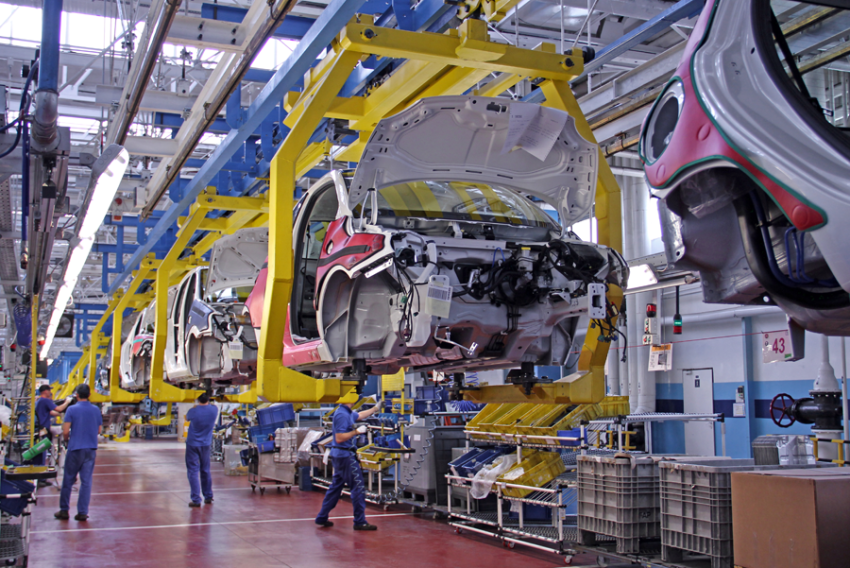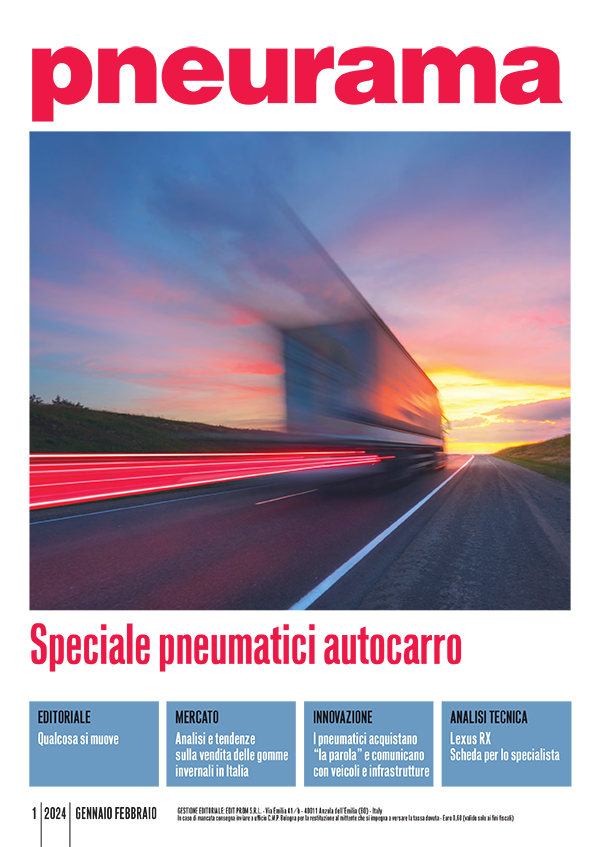The performance of the automotive supply chain in Italy is experiencing ups and downs, the latter coming from production, while logistics development is faring better. Let us start with production plants, where the index of Italian automotive production in November - data currently available - shows a negative sign (-13.7%), following the same trend already recorded in the previous three months.
These are Anfia data as described by director Gianmarco Giorda. For the fifth consecutive month, the index of motor vehicle manufacturing recorded a double-digit drop of -23.9%, mostly affected by the lingering microchip shortage while the index of automotive components production managed to slightly reverse the trend, closing the month of November at -4.5%. "In this context - says Giorda - at a time when measures for carbon-neutrality by 2030-2035 are being discussed at European level, it is incomprehensible to see that the 2022 Budget Law contains no measures to encourage the purchase of zero and ultra-low emission cars and light commercial vehicles over a multi-year period, which are essential to support the sector and guide consumers through the ecological transition". Meanwhile, here is a rather interesting and innovative idea: with the goal of developing customer centric connected experiences across millions of vehicles, Stellantis and Amazon have announced a series of global, multi-year agreements aimed at steering the mobility industry's transition into a sustainable future. The agreement, which involves Amazon Devices, Amazon Web Services (Aws) and Amazon Last Mile will enable Stellantis to accelerate its transformation into a sustainable mobility technology company. The companies will work together to implement Amazon's technology and software expertise throughout the Stellantis organization. This process will involve vehicle development, building connected in-car experiences and training the next generation of automotive software engineers. Together, both companies will create a portfolio of products and services that will integrate with customers' digital lives through regular software updates.
The supply chain, however, as mentioned in the opening, shows also some positive data, which concerns a higher turnover in 2021 for logistics up 3.5% compared to the previous year. The estimated value for this year is 86 billion euro, edging close to the pre-pandemic 87 billion recorded in 2019. New trends, such as logistics 4.0 and sustainable logistics, are growing, as are advanced logistics services, which produce ten percent of the global turnover. This growth is driven by e-commerce, which is no longer a niche: for sixty percent of suppliers, this item is worth more than twenty percent of the turnover. The downside, however, relates to rising costs for all components of the business: energy (+24%), fuel (+13%), rent (+2%) and labour (estimated +5% following the renewal of the national labour contract).
"In 2021, logistics companies succeeded in overcoming the pandemic emergency, became more aware of the strengths and weaknesses of their logistics system and supply chain, and started to work towards greater economic, social and environmental sustainability," Marco Melacini, scientific head of the Contract Logistics Observatory, explained. "Not all without issues though! As turnover started to grow again production costs have likewise increased and the development of green solutions and new procurement strategies require large investments and organizational changes. The sustainable transition of the logistic sector has begun, however, to consolidate it good use of the NRP funds - which has allocated 62 billion euro to mobility, infrastructure, and logistics – is necessary as well as a better use of the potential offered by Logistics 4.0".
It must be said, however, that logistics providers are increasingly expanding their portfolio of advanced services. This involves management of packaging, for 54% of the clients, replenishment of production systems (39%) - through the creation of tailor-made kits - in product transformation (26%) and in production process that require specific skills on technological cycles (17%). Such advanced services also concern environmental sustainability, such as packaging pooling (indicated by 19% of customers) and circular economy solutions (17%).


